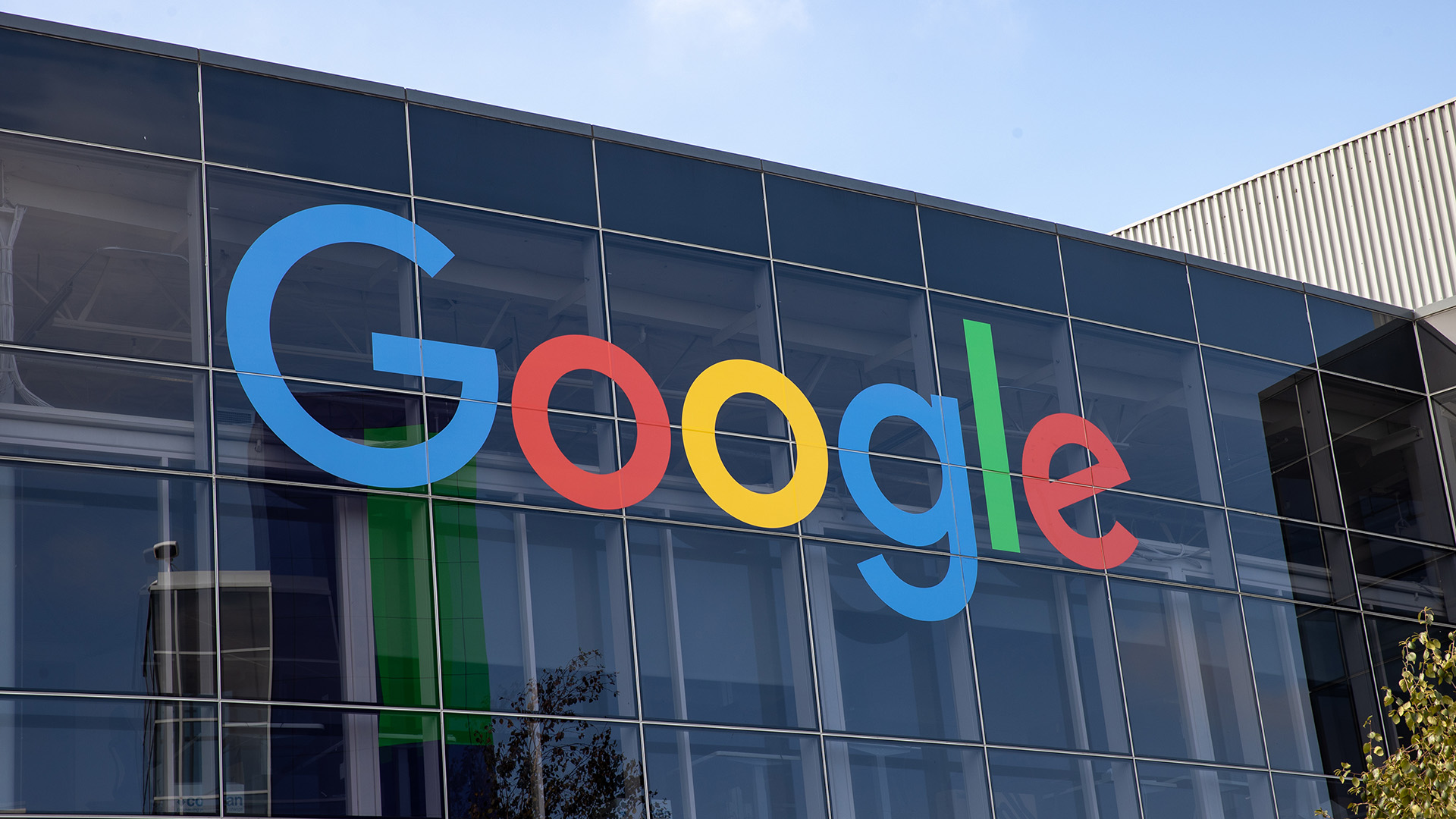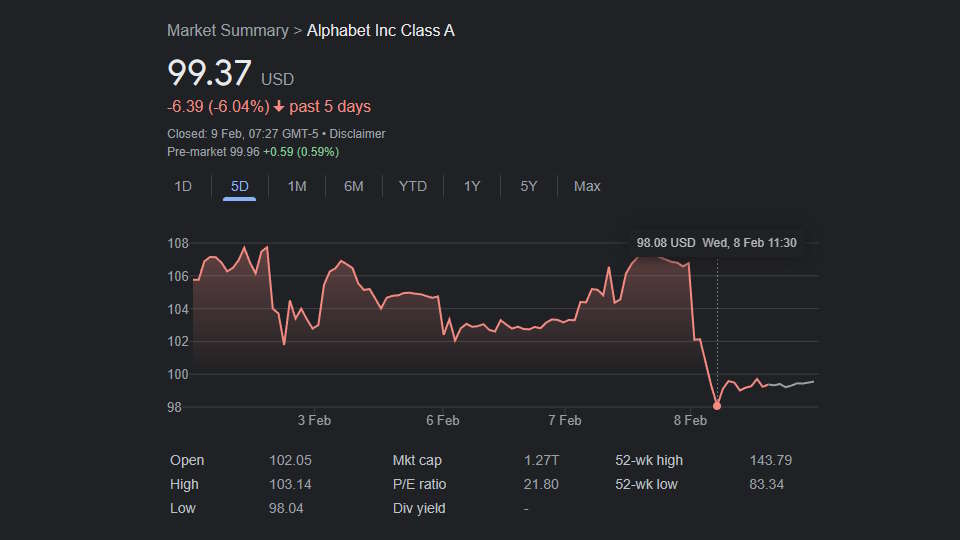Google's new AI didn't do a racism but its public screw up still knocked $100B off the books
BARD confidently delivered some inaccurate info in a public promo, which also delivered a real blow to the company's market valuation.

We all love a healthy dose of schadenfreude now and then, and when it comes at the expense of one of the biggest tech companies in the world, particularly when it's trying to show off, well… that's just pure unadulterated pleasure, no? An advert highlighting the power of its new BARD AI chatbot Google only served to highlight just how confident it was in delivering an inaccurate result.
And that wiped some $100 billion off the market value of parent company, Alphabet. Oof. That's an expensive wrong answer, BARD.
There's been a long history of AI giving problematic answers and responses, but generally they been on the more bigoted side of the spectrum, such as the South Korean chatbot suspended from Facebook and even Microsoft's own super-racist chatbot, Tay.
At least BARD's error was more factually inaccurate than ideologically concerning.
Google had its hand forced in terms of taking the wraps off its BARD AI by the rise of OpenAI's ChatGPT, especially since Microsoft pumped a bunch of cash into the company's coffers in return for jamming it into its Bing search engine. Microsoft has now launched a new chatty version of Bing with ChatGPT's code integrated into it, and you can sign up to be one of the first to try it out yourself.
Speaking as a typing meatsack dependent on writing for money, it's still somewhat problematic, but there's no putting this genie back in the bottle. Maybe I'll learn how to be an electrician…
But what both ChatGPT and Google's BARD has shown is that the AI's results are entirely dependent on the quality of information that it's been fed. If it's given the wrong information, then it will just parrot it confidently to the end user, like some politician dumped on daytime TV with just a sound bite to spout at the cameras.
Keep up to date with the most important stories and the best deals, as picked by the PC Gamer team.
And BARD did that in a promotional ad when it stated one of the things you could tell a 9 year-old about the James Webb Space Telescope was that it delivered the first images of a planet outside of our solar system. In reality it was the laconically titled Very Large Telescope which did that back in 2004.
Bard is an experimental conversational AI service, powered by LaMDA. Built using our large language models and drawing on information from the web, it’s a launchpad for curiosity and can help simplify complex topics → https://t.co/fSp531xKy3 pic.twitter.com/JecHXVmt8lFebruary 6, 2023
Google tried to spin the embarrassment as highlighting "the importance of a rigorous testing process, something that we're kicking off this week with our Trusted Tester program."
According to Reuters, the Google spokesperson also said, "We'll combine external feedback with our own internal testing to make sure Bard's responses meet a high bar for quality, safety and groundedness in real-world information."
But it seems the markets didn't love that hand-waving response and Alphabet shares dropped by up to 9% at one point. That wiped $100 billion off the market value. Though it's worth pointing out the market value figures are quite an illusory valuation of a company given the incessant volatility of the stock market.
Its share price has now settled at around 7% below the trading price prior to the ad going live, which is still quite a marked drop.
AI is certain to be a key battleground for the search engines over the next few years, and it looks like Microsoft has got in ahead of the competition and drawn first blood. Though what impact that will have going forward is hard to say. Google is a colossus. I mean, OpenAI integration is still unlikely to encourage folk to actually switch to Bing for the long term. Who's ever going to use that as a verb? I Binged it? Let me Bing that for you? Nah.

Dave has been gaming since the days of Zaxxon and Lady Bug on the Colecovision, and code books for the Commodore Vic 20 (Death Race 2000!). He built his first gaming PC at the tender age of 16, and finally finished bug-fixing the Cyrix-based system around a year later. When he dropped it out of the window. He first started writing for Official PlayStation Magazine and Xbox World many decades ago, then moved onto PC Format full-time, then PC Gamer, TechRadar, and T3 among others. Now he's back, writing about the nightmarish graphics card market, CPUs with more cores than sense, gaming laptops hotter than the sun, and SSDs more capacious than a Cybertruck.


